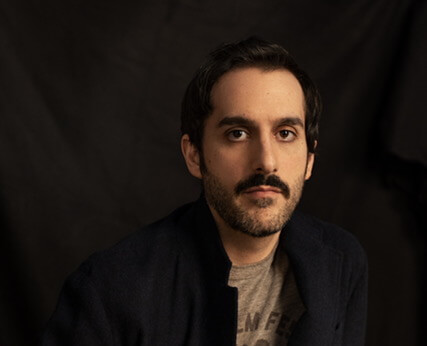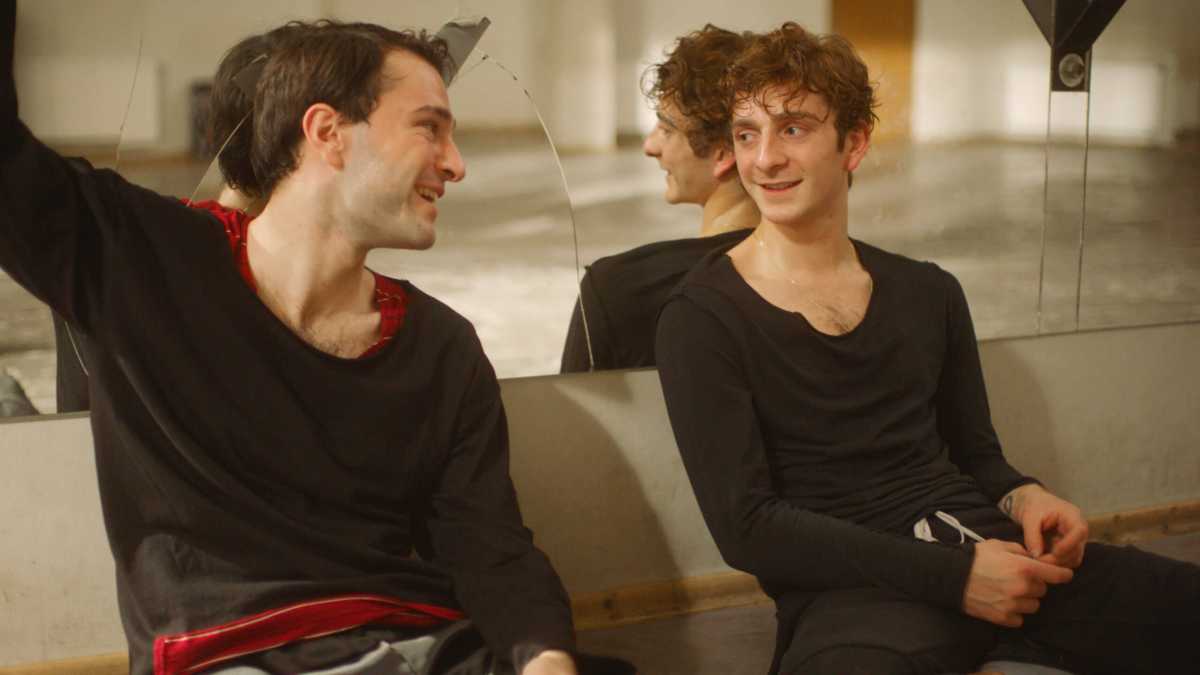Out gay writer/ director Levan Akin’s tender romantic drama, “And Then We Danced,” is the first queer feature from the Eurasian nation of Georgia. Merab (Levan Gelbakhiani) is a closeted dancer in the Georgian national dance company. When Irakli (Bachi Valishvili) joins the troupe, Merab is secretly attracted to him and the two soon initiate a clandestine affair. However, the lovers also become rivals for a position in the main ensemble. How things play out, in both love and dance, forms the emotional core of this compelling film.
Akin, who lives in Sweden, but is of Georgian heritage, knew his film was going to be controversial, but he never imagined it to have the impact it did. “And Then We Danced” generated protests at the film’s premiere in Tbilisi from right-wing and Orthodox religious groups for its portrayal of homosexuality in such a traditional context.
That controversy gave the film extra visibility in Georgia, the director recently acknowledging via WhatsApp, “The premiere was very intense.”
Akin added, “I hoped it would help people in Georgia. I interviewed a lot of LGBT people. I wanted to get the feel of their lives there, and understand that it’s two parallel worlds living in the same country — the young generation, who grew up with the internet, and the older generation, who don’t speak or read English and are stuck in Soviet times.”
He continued, “There is a lot of propaganda from Russia against the West and they use the LGBT issue to fear-monger. When this film came out in Georgia, folks are homophobic by default. They don’t know gay people and think they are all perverts and pedophiles because that is what they are told. But when they see my film, some really old people in their 80s loved it, and we’ve heard the film has changed some people’s views on LGBT people and that makes me very happy.”

Akin wanted to make a film that is hopeful to inspire people in general and Georgia’s queer community in particular. He claimed he could have never made the film if he were living and working in Georgia. As he shot “And Then We Danced,” he thought about how his life might have been.
“It shows the difficulties in Georgia,” he explained. “I wanted to be celebratory, and celebratory to the Georgian culture; it’s a love letter to my own heritage. I didn’t want to make a film about an old, stiff, patriarchal society that needs to be destroyed. I wanted to be inclusive. I wanted to show that you yourself decide how you interpret and celebrate the culture.”
The dancing sequences are fantastic, and Gelbakhiani, who is a modern dancer, learned how to perform the traditional routines for the film. Akin shoots the actor intimately, tactilely, to “feel” his emotions. Many of the dance sequences are shot close, to capture Gelbakhiani’s intensity. There is also a fabulous scene where Merab dances seductively for Irakli to Robyn’s “Honey.”
While “And Then We Danced” shows intimacy between the men, the film is more sensual than explicit, a deliberate choice on Akin’s part. One sex scene is shot without a cut to allow viewers to be in the moment with the characters, but far more erotic are scenes of Merab and Irakli lying in bed together just staring at each other or a scene in Irakli’s bedroom that percolates with sexual tension.
“To me, the film is about Merab’s awakening, and not the details of how they have sex,” Akin said. “It is how that awakening makes Merab accept himself and carve out a place in this conservative society: ‘This is who I am, and what I am, and how to interpret my traditions.’ In his case, he is never worried, or angry, or hesitant when he is in love. He is engulfed and happy. He never backs down when confronted; he stands up for himself. He is never a victim. I wanted to show that.”
Gelbakhiani is tremendous in the lead role, capturing the flush of emotions — from happiness to anxiety — that come from first love. (Akin admitted that his personal experiences influenced the film and the character). But the actor had concerns initially about playing queer.
“Levan was very hesitant in the beginning, but he was curious,” Akin explained. “He talked to his family and friends and they supported him, and he felt safe. But it wasn’t an easy choice.”
Both Gelbakhiani and Valishvili live in Georgia, and an adverse reaction to the film could have hurt their careers. However, the opposite happened.
“Thankfully the film has done very well, which helped. The media has been positive and very supportive of it, which is very amazing,” Akin explained. “That helped them and helped make their families more accepting and the film more mainstream. Had the film not done as well, it would have been more difficult for them, but they are stars in Georgia now.”
AND THEN WE DANCED | Directed by Levan Akin | In Georgian, with English subtitles | Music Box Films | Opens Feb. 7 | Quad Cinema, 34 W. 13th St.; quadcinema.com



































